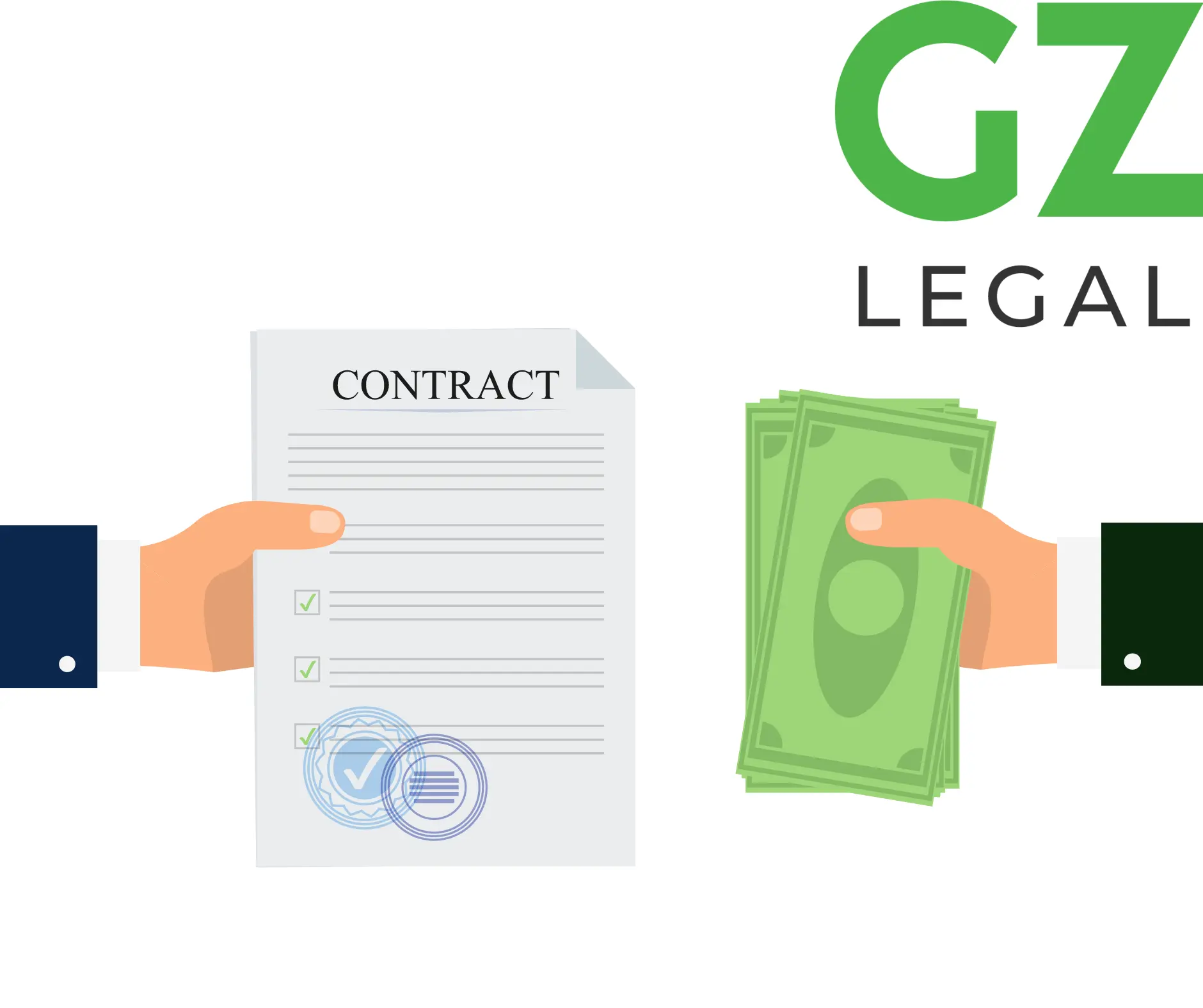Malcolm ZoppiSun Oct 15 2023
Why is a Service Contract Important? Key Reasons to Consider
Service contracts establish clear expectations and facilitate successful business relationships.
Why is a Service Contract Important? Key Reasons to Consider

Service contracts play a crucial role in today’s business environment, providing a framework for the delivery of various products and services across industries. These agreements outline the terms and conditions under which businesses interact, ensuring the mutual understanding and commitment expected by both parties. As the world increasingly relies on contractual arrangements, it is important to understand the significance of service contracts in business today and how they can influence the success of any business relationship.
The importance of a service contract lies in its ability to establish clear expectations between businesses, thereby reducing the potential for misunderstandings and disputes. These contracts specify the scope of services to be provided, prices, timelines, and other relevant details. They also serve as a legally binding document that can be used to protect the interests of both parties in the event of a disagreement. By setting a sturdy foundation, businesses can confidently move forward in their collaborations, guided by the certainty and predictability instilled by a well-structured service contract.
Key Takeaways
- Service contracts establish clear expectations and facilitate successful business relationships.
- They provide a legally binding framework for the services, prices, and timelines agreed upon by both parties.
- A well-structured service contract ensures protection of interests and fosters predictability in collaborations.
Understanding Service Contracts
Purpose of Service Contracts
Service contracts are legally binding agreements between two parties that outline the terms of a specific service. They are essential for establishing mutual understanding and trust between the parties involved. Not only do service contracts provide legal protection, but they also have many benefits that help ensure that all expectations are met throughout the duration of the agreement.
Elements of a Service Contract
A complete and effective service contract typically consists of the following key elements:
- Offer: An explicit proposal made by the service provider detailing the services they will provide.
- Acceptance: The acknowledgment of the offer by the customer, agreeing to the terms set forth in the contract.
- Consideration: This refers to the value exchanged between the parties, such as the payment for services rendered.
- Capacity: Both parties must have the legal capacity to enter into contractual relations, which includes being of a certain age and of sound mind.
- Written Contract: Although oral agreements can be binding in some cases, it is always preferable to have a written contract detailing the terms and conditions of the service to avoid potential disputes and misunderstandings.
Varieties of Service Contracts
There are several types of service contracts that cater to various business and service needs. These include:
- Fixed-price contracts: In this type of agreement, you, as the customer, agree to pay the service provider a set amount for the services provided, regardless of the time or resources required to complete them.
- Time and materials contracts: With these contracts, your payment is based on the actual time and resources the service provider utilises to complete the service, often billed at an hourly rate.
- Retainer contracts: Under this agreement, you pay an upfront fee to the service provider, who then provides an agreed-upon amount of services per month or per project.
- Performance-based contracts: Here, payment is tied to the achievement of specific objectives or milestones outlined in the contract.
Remember, a service contract is crucial in protecting both the provider and the customer from potential disputes, ensuring a smooth and transparent transaction. By understanding the purpose, elements, and varieties of service contracts, you can better navigate and negotiate the terms of your agreements.
Advantages of Service Contracts
Business and Revenue Generation
Service contracts play a crucial role in your business growth and revenue generation. With fixed-term agreements, you can secure long-term income streams and ensure customer loyalty. These contracts enable companies and you to develop better relationships with clients by delivering continuous and reliable services. Moreover, through consistency of services, your business can gain a competitive edge by strengthening its reputation in the market.
Risk Management
Having a service contract in place helps minimise risk for both parties. It clearly outlines the scope of work, responsibilities, and deliverables, reducing the chances of disputes or misunderstandings. Additionally, service contracts protect your business by establishing payment terms and penalties for late payments or cancellations. They also set out conditions for termination and indemnification, safeguarding you and one business from potential legal challenges and liabilities.
Efficiency and Predictability
Service contracts enable more efficient planning and predictability for your business operations. They allow you to allocate resources and staff more effectively by scheduling work in advance, improving your ability to meet deadlines and maintain high-quality work. Furthermore, these agreements provide a clear understanding of your clients’ expectations and enable you to manage them efficiently. This predictability fosters a smoother workflow, reducing stress and enhancing overall performance.
Payment and Costs in Service Contracts

Role of Payment
In service contracts, payment plays a critical role in defining the exchange between you and the service provider. It outlines your obligations to compensate the provider for their services and the provider’s expectations on when and how they will receive payment. This helps to establish a clear and transparent relationship between both parties, ensuring that the provider is fairly compensated for receive services and you receive the services you have agreed upon.
Understanding Costs
It is essential to thoroughly understand the costs involved in the service contract. This includes the fees for the actual services and any other additional costs or expenses related to materials, equipment, or other resources required for the delivery of the service. Make sure to carefully review the contract to understand the full extent of your financial obligations and establish appropriate budgets for the project. It is not uncommon for there to be a breakdown of costs in the contract, which might include:
- Service fees or hourly rates
- Expenses such as travel, accommodation and material costs
- Reimbursement of expenses incurred by the service provider
By comprehending the costs involved, you can avoid any surprises and ensure that you are getting the best value for money on your investment.
Late Payments and Penalties
To maintain a harmonious relationship with the service provider and avoid disputes, it is crucial for customers to adhere to the payment terms specified in the contract. Late payments, apart from causing cash flow issues for the provider, can also lead to penalties and additional charges as stipulated in the agreement.
If you foresee any difficulties in meeting your payment obligations, for example, it is important to communicate with the provider promptly and discuss a potential payment plan or alternative arrangements. This will help to maintain a positive relationship and avoid any unnecessary disputes.
In conclusion, a clear understanding of payment and costs in service and repair contracts is essential for a successful partnership. Ensure you are fully aware of your obligations, possible additional expenses and the consequences of late payments to make the most of your service contract.
Legal Aspects of Service Contracts

Legal Protection
Service contracts provide legal protection to both parties involved in the agreement. They outline the roles, responsibilities, and expectations of each party, helping to prevent misunderstandings and disputes. This offers a sense of security, as you know your rights and obligations under the contract, and it holds both parties accountable for their actions. Furthermore, a service contract can help to limit your liability by specifying the scope of the services to be provided and any potential risks involved.
Termination and Breach
A well-drafted service contract will include termination and breach clauses, which are crucial in protecting your interests. These clauses define the circumstances under which either party can terminate the contract and outline the consequences of a breach. Termination clauses can specify:
- A fixed term or an ongoing basis, allowing either party to end the contract after providing notice.
- Specific grounds for termination, such as non-payment or failure to meet performance standards.
Breach clauses, on the other hand, provide details about:
- How a breach of contract is defined.
- The steps required for rectifying a breach.
- Penalties or remedies for breaking the terms of the agreement.
Having these provisions in place ensures that you have a clear understanding of the implications if either party does not adhere to the contract.
Jurisdiction and Dispute Resolution
Disputes may arise during the course of a service contract, and it is essential to include provisions for jurisdiction and dispute resolution. These clauses outline:
- The legal jurisdiction governing the contract, ensuring you are aware of the applicable laws and regulations.
- The preferred method of dispute resolution, which may include negotiation, mediation, arbitration, or litigation.
By specifying these aspects in the contract, you will have a roadmap to follow in the event of a disagreement, helping to avoid prolonged court battles and minimise potential liabilities. Ultimately, addressing the legal aspects of maintenance and service contracts contributes to a smooth business relationship, fostering trust and reliability between both parties.
Negotiating Service Contracts
Setting Expectations
When negotiating service contracts, one of the key aspects to consider is setting clear expectations. This ensures that both you and the service provider have a mutual understanding of what is expected during the course of the agreement. This may involve specifying details such as the scope of work, timelines, and any deliverable requirements. By clearly defining these elements, you can avoid confusion or potential disputes in the future, ultimately safeguarding your business interests.
Confidentiality and Trust
Building trust and maintaining confidentiality are paramount during the negotiation process. Negotiating terms that protect your organisation’s intellectual property and sensitive information is essential, particularly if the service provider may have access to your company’s systems or data. It is crucial to incorporate clauses that bind the service provider to confidentiality obligations. This not only fosters trust but also ensures your organisation’s sensitive information is protected throughout the duration of the contract.
Deliverables and Milestones
In the context of service contracts, deliverables are the tangible outcomes or services to be provided by the service provider. Negotiating clear deliverables and milestones allows you to monitor the progress of the contract, assess the provider or company’s performance, and ensure that your business objectives are met.
When defining deliverables and milestones, consider the following:
- Be specific about the deliverables and expected outcomes.
- Set realistic timelines for each milestone, ensuring there is adequate time for completion without compromising the quality of the work.
- Establish performance indicators or metrics by which the deliverables will be assessed.
- Address any contingencies or potential delays that may arise during the course of the contract, outlining the appropriate steps for resolution.
By meticulously negotiating service contracts with these sub-sections in mind, you can create a solid foundation that will allow you to manage your service agreements effectively, ultimately promoting long-term success in your business.
Roles and Responsibilities in Service Contracts
In a service contract, it is crucial to understand the roles and responsibilities of one party, both the service provider and the client. This helps to ensure smooth collaboration between the two parties and minimises the likelihood of disputes. In this section, we will discuss the key responsibilities of each party involved in a service contract.
Service Provider Responsibilities
As a service provider, your primary responsibility is to deliver the agreed-upon services or products to the client in a very timely manner and professional manner. This includes:
- Understanding and meeting the client’s requirements: Before starting any work, ensure that you have a clear understanding of what the client expects from you, and strive to meet these expectations.
- Planning and executing: Develop a detailed plan for delivering your services or products and follow it diligently. Update the client as necessary to inform them about progress and any potential setbacks.
- Maintaining open communication: Communicate with the client regularly, keeping them informed on your progress and addressing any concerns or queries they might have.
- Ensuring legal compliance: Adhere to all relevant laws, regulations, and industry standards related to the services you’re providing.
- Providing documentation: Upon completing the project, provide the client with all relevant documentation, including project reports and/or other applicable deliverables.
Client Responsibilities
As a client, your role in the service contract is to provide the service provider with the necessary information and resources to carry out their work. Your responsibilities include:
- Setting clear expectations: Before entering into the contract, ensure that the service provider has a detailed understanding of your requirements, and that these are outlined in the service contract.
- Facilitating access: Provide the service provider with access to relevant information, assets, and resources needed to complete their work (e.g., logins, materials, workspace, etc.).
- Maintaining open communication: Keep an open line of communication with the service provider, addressing any issues or concerns that may arise during the course of the project.
- Providing timely feedback: Review the service provider’s work at regular intervals and offer constructive feedback to help them improve or course-correct, as needed.
- Fulfilling financial obligations: Pay the service provider the agreed-upon fees as outlined in the contract, promptly and in accordance with the payment terms.
In summary, understanding and adhering to the roles and responsibilities of both the service provider and the client is essential for the successful completion of a project under a service contract. This not only fosters a professional working relationship between the involved parties but also increases the likelihood of a satisfactory outcome.
Frequently Asked Questions
What are the main benefits of having a service contract?
Having a service contract offers numerous advantages for both the service provider and the client. These benefits include clarity on the scope of work, the fees for the services, and the duration of the agreement. A well-drafted contract also ensures that both parties fully understand their respective obligations and responsibilities, thereby reducing the chances of misunderstandings or disputes.
How does a service contract protect both parties?
A service contract safeguards both the service provider and the client by outlining the specific terms and conditions of the services rendered. This includes the scope of work, payment terms, timelines for deliverables, and any applicable clauses for termination or dispute resolution. By clearly defining these aspects, a service contract sets expectations, mitigates risks, and promotes a mutually beneficial and professional relationship.
Why is a detailed service contract crucial in business?
In the business world, a detailed service contract is essential as it serves as a legally binding agreement ensuring that both parties deliver on their promises. It provides a framework for performance assessments, fosters trust between the involved parties, and can help promote long-term and stable business relationships. Additionally, having a clear, concise, and thorough contract demonstrates professionalism and helps establish credibility with clients and partners.
How does a service contract ensure quality work?
A service contract can guarantee quality work by outlining the specific deliverables, performance standards, and any applicable warranties or guarantees. This gives the service provider a clear understanding of what is expected of them and the quality levels they must meet. Additionally, a well-written contract often includes mechanisms for dispute resolution or discussions for addressing any issues concerning the quality of the work performed.
What role does a service contract play in setting expectations?
Setting expectations is a vital aspect of a successful business relationship, and a service contract plays a crucial role in achieving this objective. The contract clearly defines the scope of work, deliverables, timelines, and payment terms for the services provided, ensuring both parties are on the same page. By laying out expectations upfront, a service contract helps prevent misunderstandings and potential disputes that can arise from miscommunication or lack of clarity.
How can a service contract help in avoiding disputes?
A well-drafted service contract can help avoid disputes by clearly delineating the terms and conditions of the service agreement made between the parties. This includes the obligations and responsibilities of each party, as well as the procedures for handling issues, termination, and dispute resolution. By having everything outlined in writing, both parties have a legal reference to fall back on, thereby reducing the chances of misunderstandings and contentious disagreements.
Find out more!
If you want to read more in this subject area, you might find some of our other blogs interesting:
- Step-by-Step Guide on How to Transfer Shares to a Holding Company
- Breach of Settlement Agreement: Consequences and Remedies Explained
- Who Gets the Money When a Company is Sold?
- What is a Counter Offer in Contract Law? Explained Simply and Clearly
- Understanding the Costs: How Much Do Injunctions Cost in the UK?
Disclaimer: This document has been prepared for informational purposes only and should not be construed as legal or financial advice. You should always seek independent professional advice and not rely on the content of this document as every individual circumstance is unique. Additionally, this document is not intended to prejudge the legal, financial or tax position of any person.